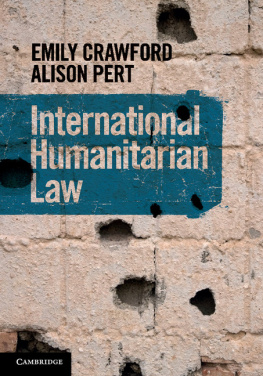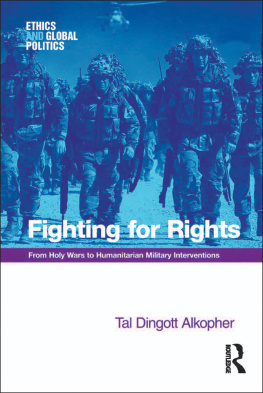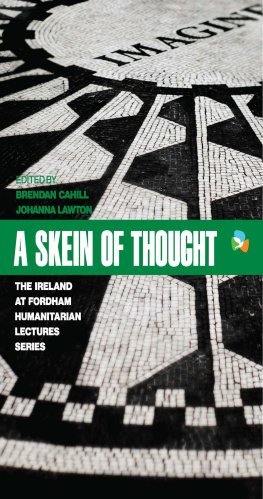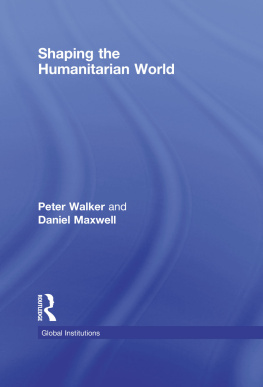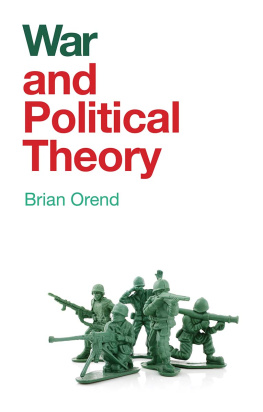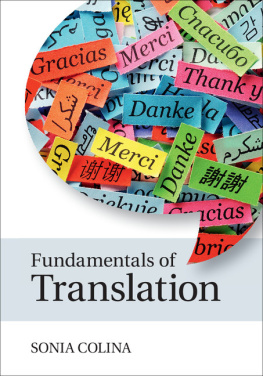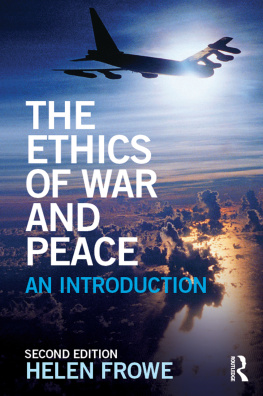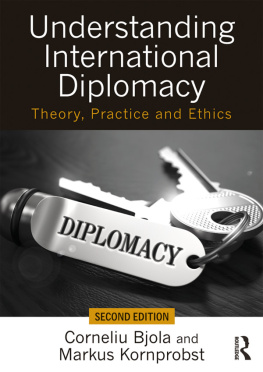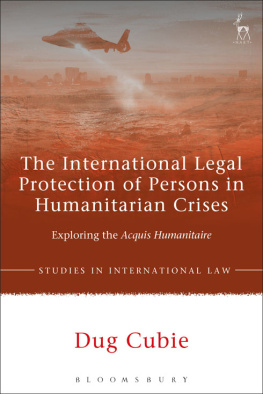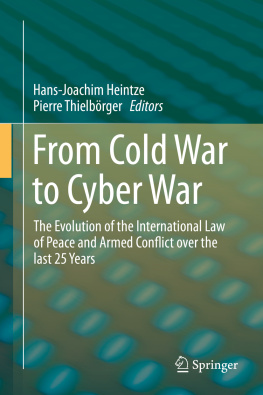This clear and concise textbook provides an accessible and up-to-date examination of international humanitarian law. With the aid of detailed examples, extracts from relevant cases and useful discussion questions, students are expertly guided through the text. A recommended reading list is included in every chapter to support deeper engagement with the material. Emerging trends in theory and practice are also explored and examined, allowing readers to build on their knowledge and grapple with some of the biggest challenges facing the law of armed conflict in the twenty-first century.
Emily Crawford is a lecturer and Director of the Sydney Centre for International Law (SCIL). She teaches international law and international humanitarian law, and has delivered lectures both locally and overseas on international humanitarian law issues, including the training of military personnel.
Alison Pert lectures at the University of Sydney in international law, specialising in the use of force and international humanitarian law. She is a qualified barrister and has practised as a lawyer in government and the private sector in London, Papua New Guinea and Australia. She has represented Australia at international organisations including Unidroit and UNCITRAL, and in treaty negotiations.
University Printing House, Cambridge CB2 8BS, United Kingdom
Cambridge University Press is part of the University of Cambridge.
It furthers the University's mission by disseminating knowledge in the pursuit of education, learning and research at the highest international levels of excellence.
www.cambridge.org
Information on this title: www.cambridge.org/9781107116177
Emily Crawford and Alison Pert 2015
This publication is in copyright. Subject to statutory exception and to the provisions of relevant collective licensing agreements, no reproduction of any part may take place without the written permission of Cambridge University Press.
First published 2015
Printing in the United Kingdom by TJ International Ltd. Padstow Cornwall
A catalogue record for this publication is available from the British Library
Library of Congress Cataloguing in Publication data
Crawford, Emily (Writer on international law) author.
International humanitarian law / Emily Crawford and Alison Pert.
pages cm
ISBN 978-1-107-11617-7 (Hardback : alk. paper) ISBN 978-1-107-53709-5 (Paperback. : alk. paper) 1. War (International law). 2. Humanitarian law. 3. International criminal law. I. Pert, Alison, author. II. Title.
KZ6385.C75 2015
341.6dc23 2015015426
ISBN 978-1107-11617-7 Hardback
ISBN 978-1107-53709-5 Paperback
Cambridge University Press has no responsibility for the persistence or accuracy of URLs for external or third-party internet websites referred to in this publication, and does not guarantee that any content on such websites is, or will remain, accurate or appropriate.
Preface and Acknowledgments
It has become something of a clich in the general literature on international humanitarian law (IHL also known as the law of armed conflict, or less frequently, the law of war
These charges, while compelling, are inaccurate. IHL is one of the oldest branches of international law, and a complex and diverse area of law, covering matters such as the treatment of civilians in times of armed conflict, permissible means and methods of waging such armed conflicts, instruction for occupying forces, rules on the protection of certain kinds of property, such as cultural property and the natural environment, and rules regarding implementation, enforcement and accountability. Research into international humanitarian law indicates that the rules are, for the most part, followed
Sadly, when the rules are broken or ignored, they often result in brutal and inhumane outcomes, as we have seen in recent years in Guantanamo Bay and Abu Ghraib, in the ISIS held territories of Syria and Iraq, in the genocide of Rwanda and the ethnic cleansing of the Former Yugoslavia. The laws governing conduct in armed conflicts were designed to try and mitigate some of the horrors of warfare. It is unsurprising then that when those rules are violated, horrible outcomes eventuate.
However, part of the process of ensuring that those violations are addressed, and that people are held accountable for such outcomes in some way, is to educate society about the laws of armed conflict, to ensure that people are aware that there are rules that govern conduct in armed conflicts, and that when violations of the rules are brought to light, some public accounting for such acts takes place. This book is a part of that process, and contributes to the process of disseminating the law of armed conflict, and bringing knowledge about its content to society at large. This book looks at this complex and dynamic part of international law, outlining the relevant law, the historical context in which the law developed and emerged, and looks at future challenges to the law.
The authors of this book have many people to thank for helping get this book to publication. First, we must thank our editorial and production team at Cambridge University Press, including Marta Walkowiak, Finola O'Sullivan and Valerie Appleby, who helped shepherd this book in its various incarnations to the work it is today. We also must acknowledge and thank the reviewers of this work, whose thoughtful comments helped shaped and develop the text. Thanks must also go to our colleagues at the Sydney Law School at the University of Sydney, whose collegiality and friendship played no small part in helping us complete the work. Alison Pert is particularly grateful to Lorraine Walsh and Sarah Schwartz for their sterling editorial assistance, and above all to her co-author Emily Crawford for her extraordinary intellectual and personal generosity in all things.
Emily Crawford would like to thank Dr Christian Henderson at the University of Liverpool for his helpful and considerate comments on early drafts of this work, which were immeasurably helpful in improving and developing the manuscript. Acknowledgments must also go to Associate Professor Christopher Michaelsen at UNSW, for his help with an early version of this text. Emily would also like to extend her profound and heartfelt thanks to her co-author, Dr Alison Pert, without whom this text would have never been finished. Emily would like to express her gratitude to her family Marisa, James, Rebecca, Graham, Daniel, Sofia, Stella, Sadie, Lynn, Phil, Liv, Dem and Lachlan, for their continued support and kindness. Finally, eternal thanks goes to James Ryan, for always making everything better.
The terms IHL, the law of armed conflict and international humanitarian law will be used interchangeably throughout this text.
Hersch Lauterpacht , The Problem of the Revision of the Law of War ( 1952 ) BYBIL .
).
See research undertaken by James Morrow , When Do States Follow the Laws of War? ( 2007 ) American Political Science Review ; and (with Hyeran Jo ) Compliance with the Laws of War: Dataset and Coding Rules ( 2006 ) Conflict Management and Peace Science .

